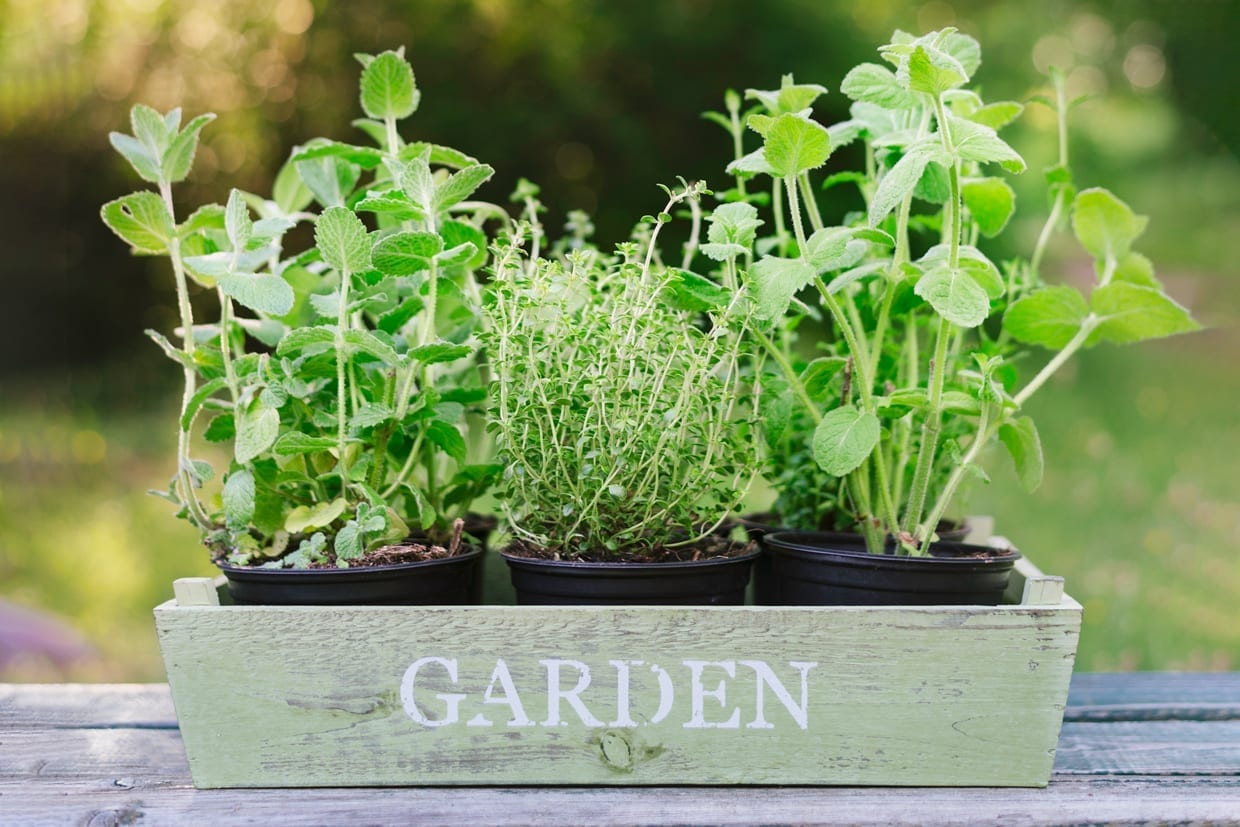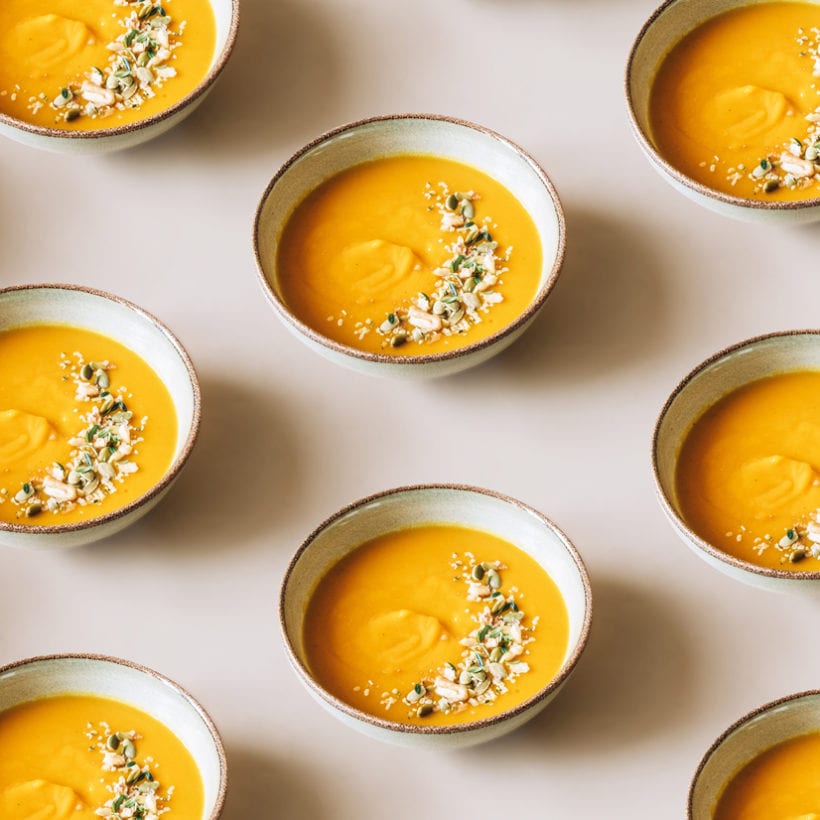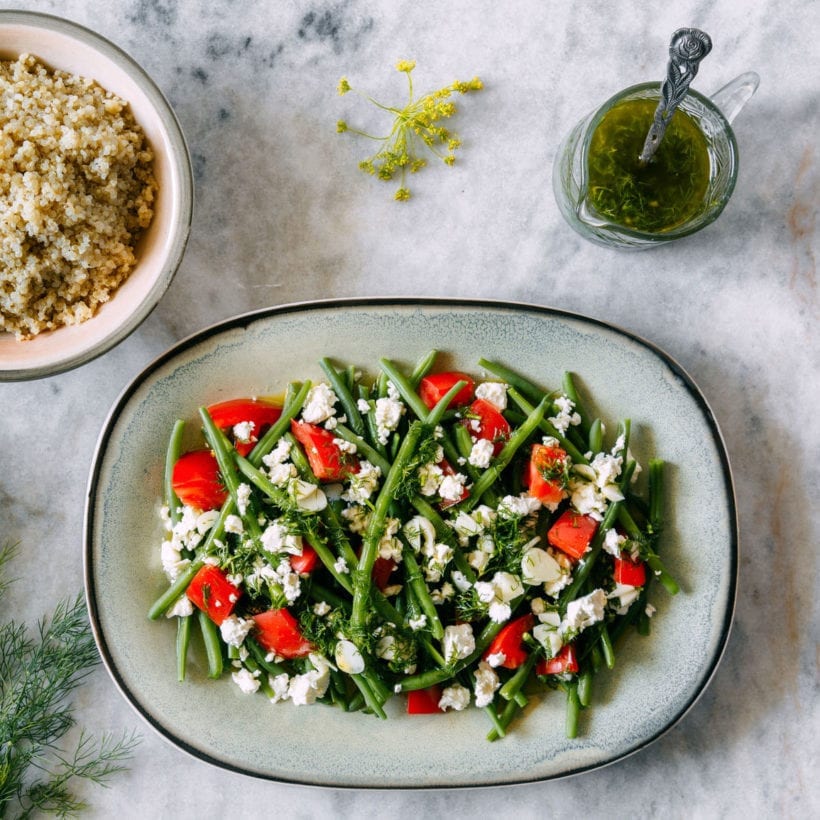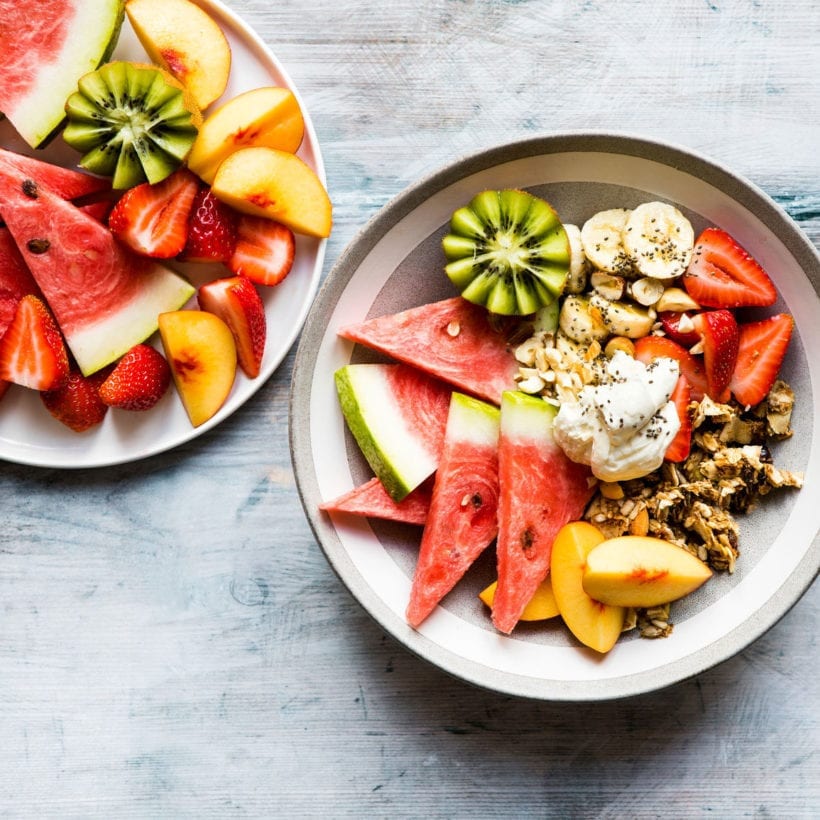Did you know having an at-home garden can save the planet? Think about it: How often do you end up throwing away parsley that you needed for one dish (as a garnish, nonetheless). In fact, 40 percent of all food is wasted, making it the number one thing found in landfills.
And while you might be inclined to pick up a cooking service like Blue Apron or Hello Fresh, the wasted packaging also hurts the planet. Instead, the answer is simple: grow your own herbs. You will save money (instead of spending $4 for that parsley at the store) and promote healthy eating and a healthy planet.
Here is our advice for building your own herb garden to make home cooking easier:
Herbs to Have
“What you should have depends on what you cook and what herbs you commonly use and like,” says Erin Hicks, a food writer, cookbook author and interior designer based in Houston, Texas. “The biggest mistake that people make is that they get all excited about having an herb garden, and then they go and buy every herb that they see and go, ‘Well, what am I going to do with lemon balm?’” Hicks recommends the following as the typical basics:
- Basil: An uber-fragrant herb that adds a ton of bold flavor to anything from dishes to salads to dessert. It is a member of the mint family and adds a Mediterranean-inspired flavor to anything. It is also great to make pesto!
- Parsley: It is a grassy-looking, mildly bitter herb that’s full of antioxidants and vitamins C and K. It adds a ton of flavors to salads and can also be sautéed with spinach.
- Chives: A savory herb that is a close relative of garlic, leeks and scallions. Aside from sprinkling it on top of baked potato, you can sprinkle them on salads and fish, as it pairs well with it.
- Rosemary: You might remember this one as one of the most fragrant of the bunch — pun intended. It is typically used to season soups, casseroles and stews. Plus, it pairs well with chicken, lamb, pork, steaks and oily fish, and also goes well with mushrooms, onions, peas and potatoes.
- Thyme: It has an earthy taste that adds a pungent, woodsy flavor to dishes. And it is typically used in soups, stews, and with meats and vegetables for its aroma as much as its flavor. It also makes a good addition to dishes in potatoes, rice dishes and even fresh bread.
- Oregano: It can be used fresh and dried – both are fragrant. It is most often paired with tomatoes, and also goes well with meats, fish and other vegetables. It also goes well with thyme and basil and other savory ingredients like garlic and olive oil.
- Mint: A clean, refreshing herb that adds a cooling effect to any dish. It pairs well with sweet and spicy dishes and drinks. You can also throw it in a morning smoothie, make mint pesto or add it to desserts.
https://www.instagram.com/p/BwiS7UIFwy_/
Where to Buy Them
“I try to buy all organic herbs because I don’t want anything GMO if I can prevent it,” says Hicks. “You can find good organic herbs at Whole Foods, or your local garden center.” Organics herbs are preferable to non-organic herbs because they are grown without fertilizers and chemical pesticides, which can be harmful to your health and have been linked to cancer. Hicks also recommends taking a stroll through your local farmer’s market for unique varieties and “micro-herbs,” which are basically the seedlings or plants, harvested a week or so before they are fully grown. Before taking the herb, though, make sure to check for pests. Aphids, spider mites and scale are commonly found in many herbs. You can easily detect it by looking for sticky droppings around the plant or tiny spider webs.
Where to Place Them
Starter herbs are easy to grow indoors, so if you do not have a backyard, no need to worry. “You need a windowsill with light,” says Hicks. “Most herbs need at least 5-6 hours of sunlight a day. If they’re in a little pot, you can always move them around or sit them outside to get a little more light for part of the day, if you need to.” Place them near a window that faces south and gets sun daily. That being said, too much direct sunlight can be detrimental to some varieties, so always make sure to refer to the plant care tag. Some herbs require less sunlight, like parsley and thyme, so they can also grow well in west-facing windows. In the winter, you can also use a grow light or stand to help keep them healthy.
https://www.instagram.com/p/BwzVDq3FI0v/
How to Care For Them
“The most important part of potting or planting anything is what kind of soil you’re using and that you replenish the soil every year,” says Hicks. “I buy mine from a company called Edible Earth, and it’s organic. In general, you want things that are grown in organic soil to minimize your exposure to pesticides.” You should avoid heavy or regular garden soil as these tend to dense up in a pot, not allowing the herb to breathe. Keep soil slightly moist and loose, not soggy.
When it comes to potting them, it’s important to use pots that have a bottom drainage hole to allow excess water to drain out. If you are not repotting them at all, then just place them in any ceramic pot you have and let it serve as the second pot that catches excess water drainage. Most herbs require good soil drainage! “If you’re going to plant herbs in the same pot or the same raised panel garden, it’s important to plant herbs that require the same amount of water together,” says Hicks. “Parsley and basil, for instance, they love water, but rosemary or thyme like their soil to be a bit drier, so do a little research on how to group your herbs.”
And lastly, it is important to trim your herbs regularly so they do not go to flower. Herbs — just like hair — are more productive and grow stronger and healthier if trimmed and pruned frequently. “If you’re overwhelmed with trimming and pruning, you can freeze them,” says Hicks. “Frozen, you can use them to make bone broths or chicken stock.” Or to roast meat in the oven. Pruning them also prevents them from outgrowing their pots, and you can do this by removing individual stems or pruning the entire herb by half its weight.
We only recommend products we have independently researched, tested, and loved. If you purchase a product found through our links, Sunday Edit may earn an affiliate commission.







